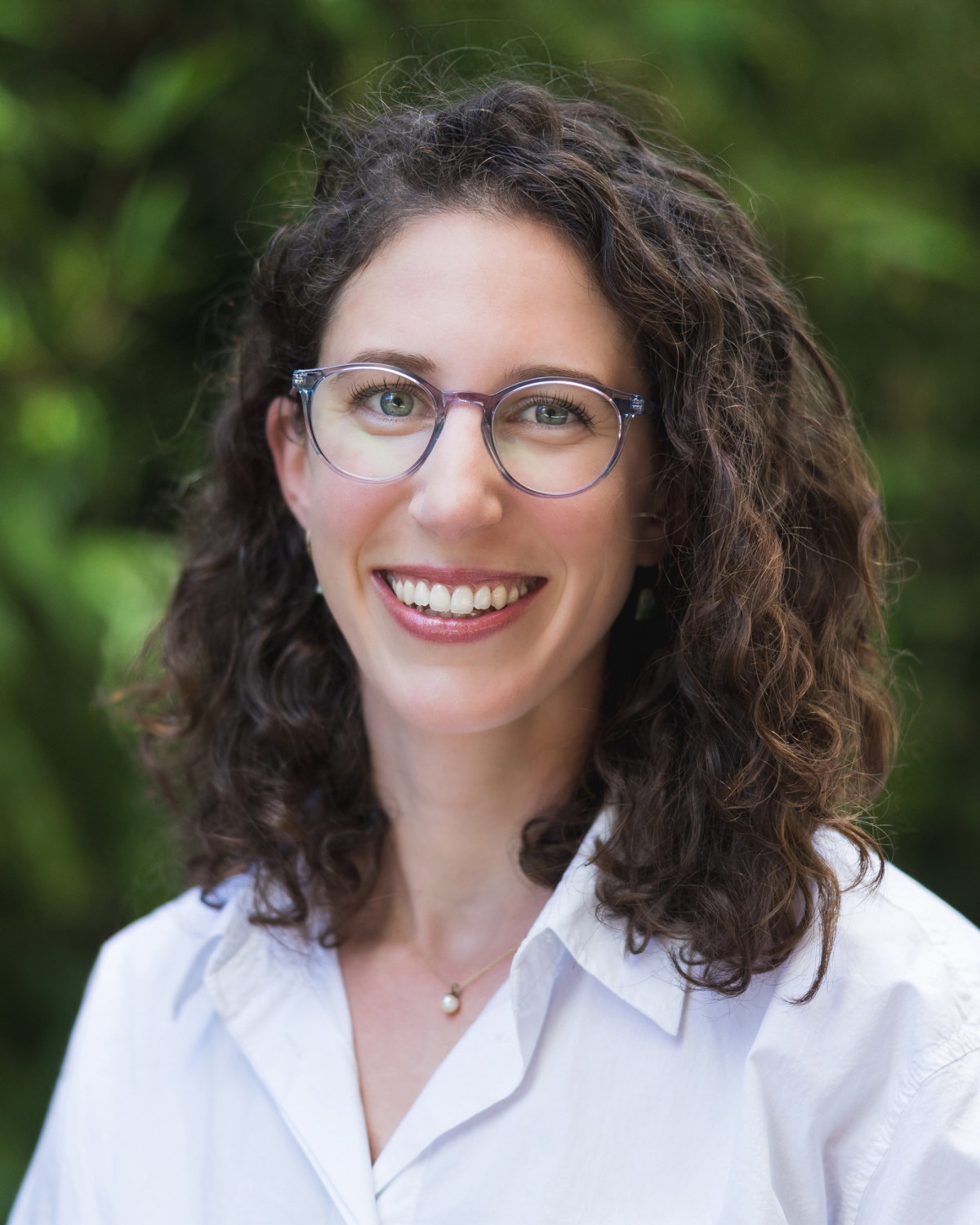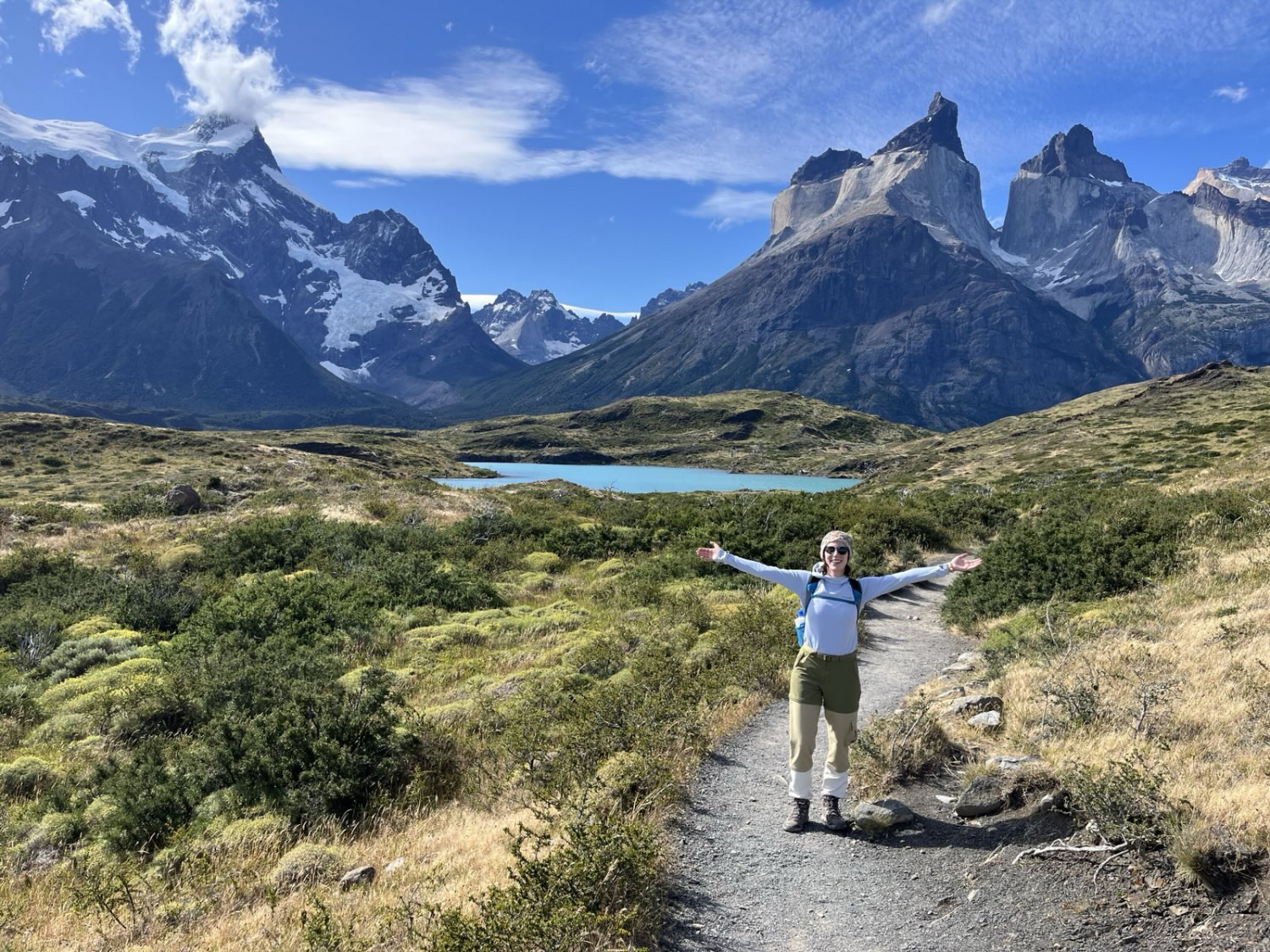Alumni Profile
Julia Turnšek: At the Intersection of Science and Entrepreneurship
By Kirsten Mickelwait

Last September, Julia Turnšek was selected as one of four fellows to receive the HS Chau Women in Enterprising Science (WIES) fellowship for entrepreneurs applying creative technologies to real-world problems at UC Berkeley’s Innovative Genomics Institute. As a Fellow, she is working on a novel biotechnology that makes nutrients more available to plants. The project is currently in the early stages of research and development and has the potential to transform the multibillion-dollar agriculture fertilizer market.
Fertilizer is important globally because it provides nutrients like nitrogen, phosphorus, and potassium to plants. These nutrients must be applied externally because plants cannot produce them, Turnšek explains. But those nutrients are already present in soils, they're just in chemical forms that plants can’t absorb.
Inspired by the natural mechanisms that microbes use to convert unavailable nutrients into chemical forms that plants can take up, her lab is developing a process that converts those nutrients into plant-friendly forms. The technology can be applied to seeds, plants, or soil. Because it’s naturally derived, it offers a healthier alternative to synthetic fertilizers.
In addition to her scientific research, Turnšek is evaluating its commercialization potential. “This fellowship has given me a year to explore,” she says. “It’s afforded me both time and lab space to work on the science, but has also allowed me to learn about the market potential before I invest a lot of time and money in building a business.”
The WIES program offers grad students, postdocs, and young faculty the opportunity to perform proof-of-concept translational research while developing their leadership talents. In the program’s first phase, four fellows each receive $150,000 in support and space at the IGI. After a year, two of those fellows are selected to receive an additional $1 million in non-dilutive seed funding. First-phase funding is provided by the HS Chau Foundation and the second phase by Horizon Ventures.
Turnšek’s path to Berkeley was not straightforward – she entered the world of biotech startups before returning to academic discovery. After earning her bachelor’s of science degree in biology from Brown University, Turnšek gained industry experience in the synthetic biology space. She first worked At Ginkgo Bioworks, Inc. as an engineer developing molecular and robotic tools for high-throughput, automated cell engineering. Then, as a cell engineering research associate at Modern Meadow, she engineered microbes to secrete collagen as a replacement for mammalian collagen to produce vegan skincare and leather products.
After these stints in industry, Turnšek came to Berkeley and received her PhD from the lab of Dr. David Savage, studying how bacteria build microcompartments as isolated hubs for specialized chemical reactions. After graduation, she remained in a short transitional postdoc position at the lab with a Howard Hughes Medical Institute fellowship studying gene-editing proteins, before winning her current fellow position.

Reflecting on her path, Turnšek notes that she was really interested in engineering biology to solve problems, but was also interested in young companies and startups. “It was really exciting to be able to learn about what it means to craft a vision and build a product,” she says. “As a scientist, you need to communicate to the business team why you're doing what you're doing, or why certain things might take longer in the lab than was originally expected. There were even some fun moments of brainstorming with folks on the marketing and business sides about the potential for future products: what was scientifically possible and what we could dream about, or what the timelines might be to build those products.”
Having experienced both, Turnšek is easily able to identify the cultural differences between academia and industry: academia is more focused on the interests or work of an individual, she says, while in industry—particularly startups—teamwork is critical. Deadlines and timing are often fast and furious in industry, while academia allows for a slower pace and more freedom to explore novel ideas.
“That was one motivation to come back to get my PhD,” she says. “That easier pace can expose you to more viewpoints and disciplines, which sparks more creativity. That was a huge value-add in returning to school: you’re just exposed to so much interesting science, and it really makes you a better scientist overall.”
Showcasing her penchant for collaboration and exploring creative scientific solutions, Turnšek led a working group during her PhD for an institutional partnership between the IGI and the Consultative Group on International Agricultural Research (CGIAR), a group that works with smallholder farmers largely in the less industrialized world. The goal was to see if IGI research expertise could help the real-world problems that farmers were facing in the field. Ultimately the collaboration fell through, due to the COVID-era cancellation of travel and big meetings. But Turnšek didn’t forget about one major problem that emerged during meetings with the CGIAR—soil nutrient deficiency—which became the genesis for the project she’s now working on.
At present, Turnšek is fully focused on her work at IGI, enjoying the luxury of time and space to pursue the full potential of her research. For the more distant future, however, does she know yet if she’ll choose to stay in academic research or return to industry? “In general, looking down the line, I do see myself working at the intersection of science and entrepreneurship in some way, shape, or form,” she smiles.
Learn more about the HS Chau Women in Enterprising Science program.
Back to Main Spring 2025 Newsletter Page





